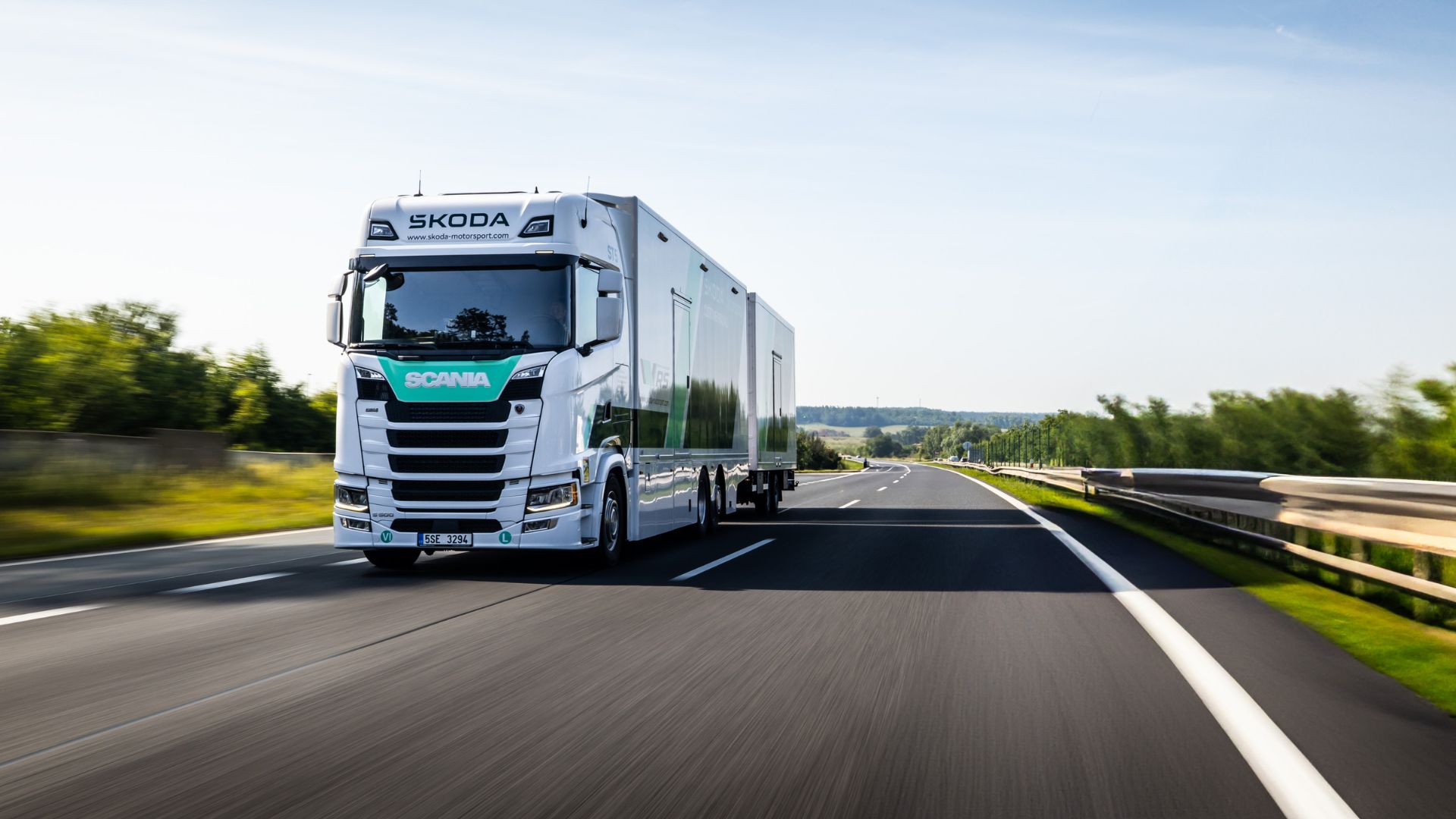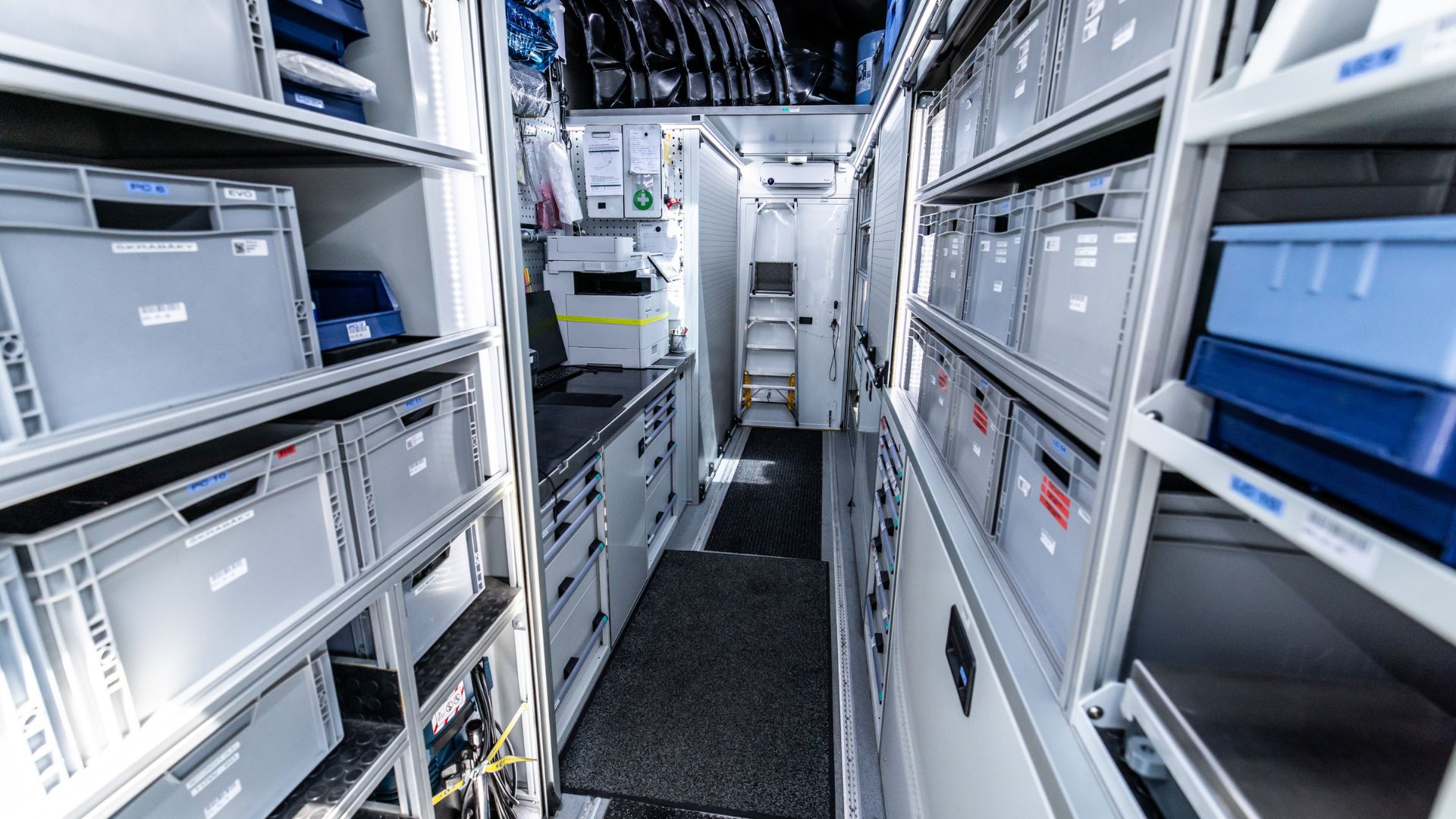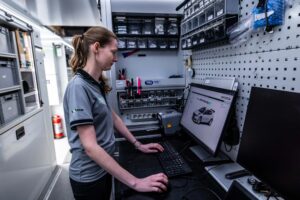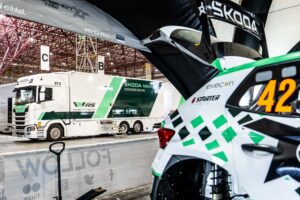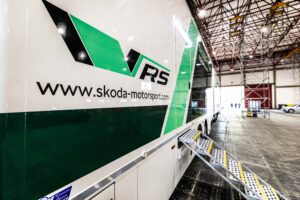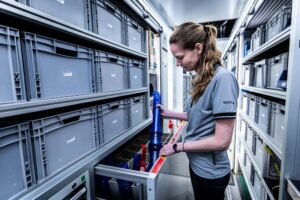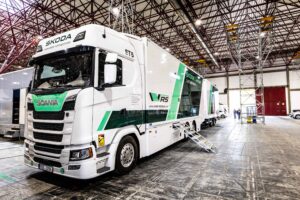For the fifth year in a row, Škoda Motorsport is sending its truck full of spare parts to selected competitions. Teams can use it to buy parts directly from the service area. Over the years, the service has proved its worth and Škoda has improved it. This year it will appear at a total of 15 competitions. Kateřina Hálová and Lukáš Paták, who are in charge of this project, describe how everything works.
How many seasons does the truck go to the rally?
Lukáš Paták: We sent a truck to Croatia for the first time as part of the WRC in 2021, so this is the fifth season we have operated this service for our customers. Our primary focus is on European WRC events and also the ERC European Championship. This year we would like to be present for our customers at a total of 15 events.
Where is it supposed to be this year?
LP: The trucks should appear on eight WRC events and seven ERC events. For this year's seasons, we have newly prepared a second identical truck, which makes the logistics easier when the events are immediately following each other. As a result, this year we were able to be present at the popular ERC event in Rome, which was not possible in previous years due to the structure of the individual championship calendars and the lack of time to restock.
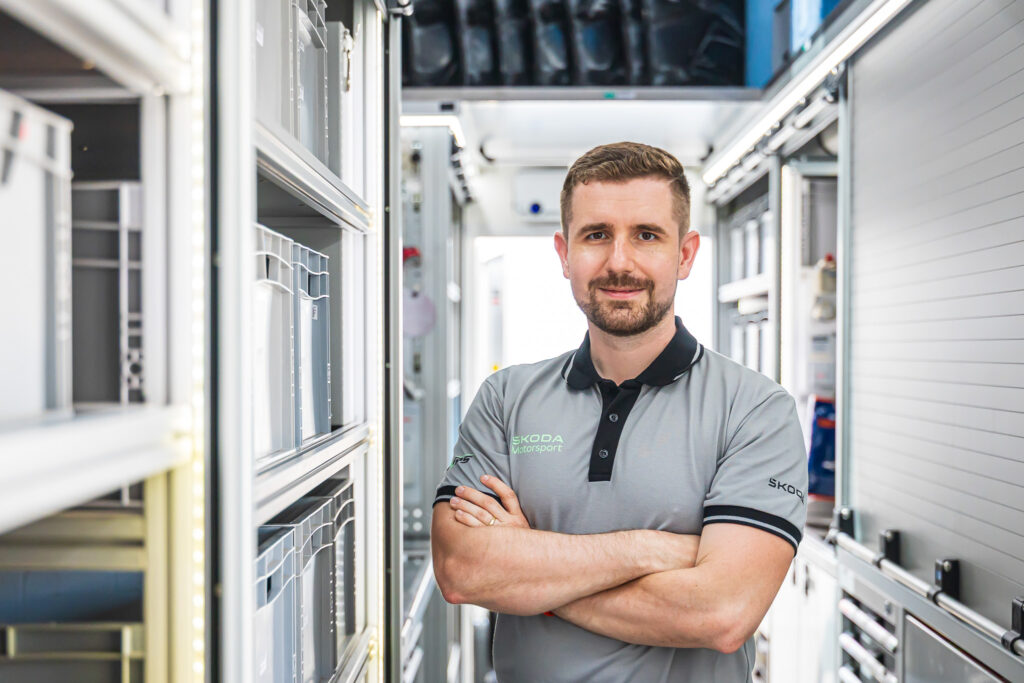
Lukáš Paták, Head of the Škoda Motorsport Customer Programme
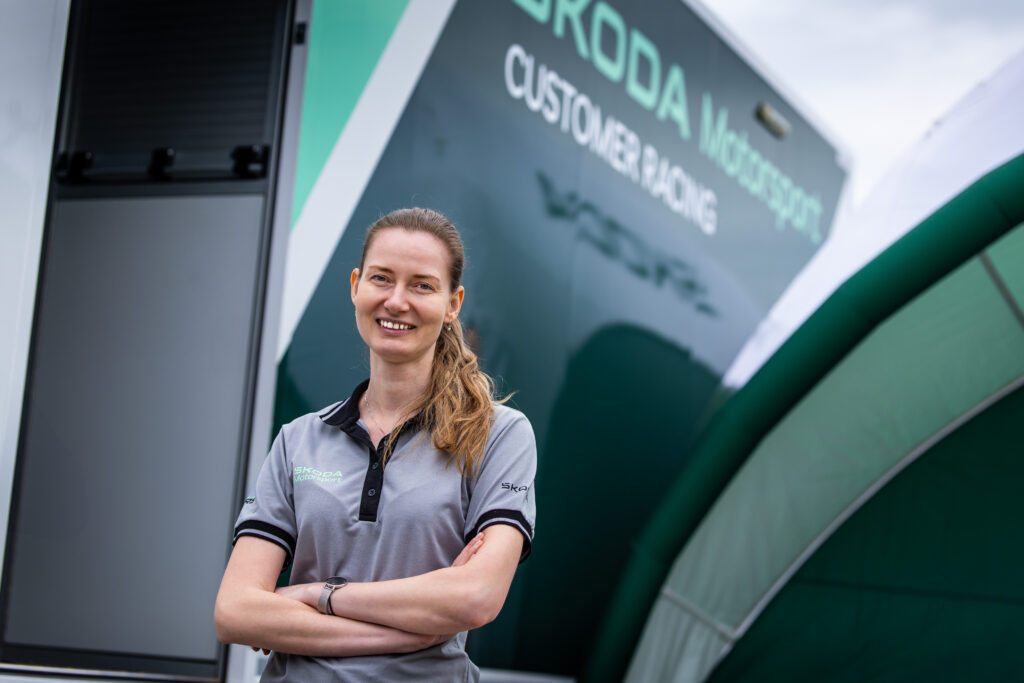
Kateřina Hálová, Sales and Customer Care/Commercial Program
How does buying parts directly at the rally actually work?
Kateřina Hálová: The truck is parked in the service station, where the competition teams have their facilities. Customers can place an order online, by e-mail or WhatsApp, or they can come and check the availability of the part in person. We will prepare the order and a team representative will then pick up the purchased parts. We handle orders promptly and try to respond flexibly, which is especially necessary in situations where customers are missing an important part just before or even during service. In the past, it has happened that without a needed part, the team would not be able to continue with the plant, and in such a situation, the ability to process the order quickly can be crucial.
Truck boosts chances of finishing rally
"It doesn't happen at every rally, but there are situations where a truck really helps. It has happened to us that if it hadn't been there, we would have had to withdraw," says Victor Pérez, owner of the RaceSeven team. And Simone Scattolin, coordinator of the Delta Rally team, agrees. He continues, "At any given moment, we actually have all the parts we need. If we don't have something right here, we can sort it out in minutes. It's a big help and the truck crew is always well prepared."
The RaceSeven team owner then explains how the truck helps with the logistics of the team itself, "We don't have to have such a large stock of parts, which both reduces the amount of money we have to put into parts, but also makes logistics easier." According to Pérez, the truck is also a kind of reassurance; having a stock of parts directly from the factory department reduces the stress levels that the anticipation of sudden problems can cause. It also means the team has more peace of mind to work with. And, of course, this helps with completing competitions and achieving great results.
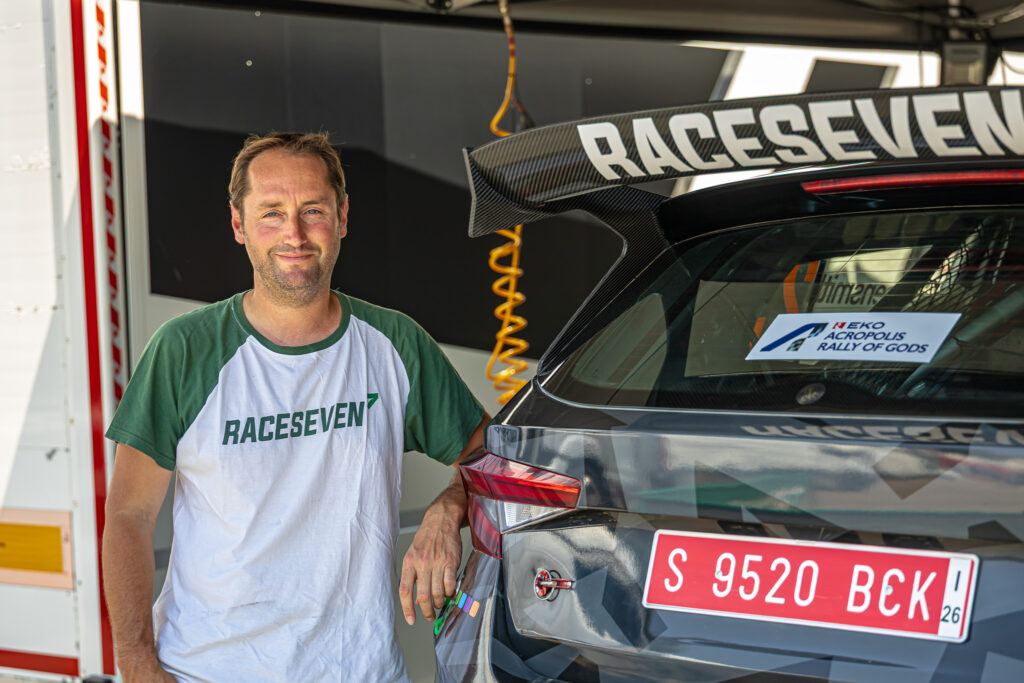
Victor Pérez, RaceSeven Team owner
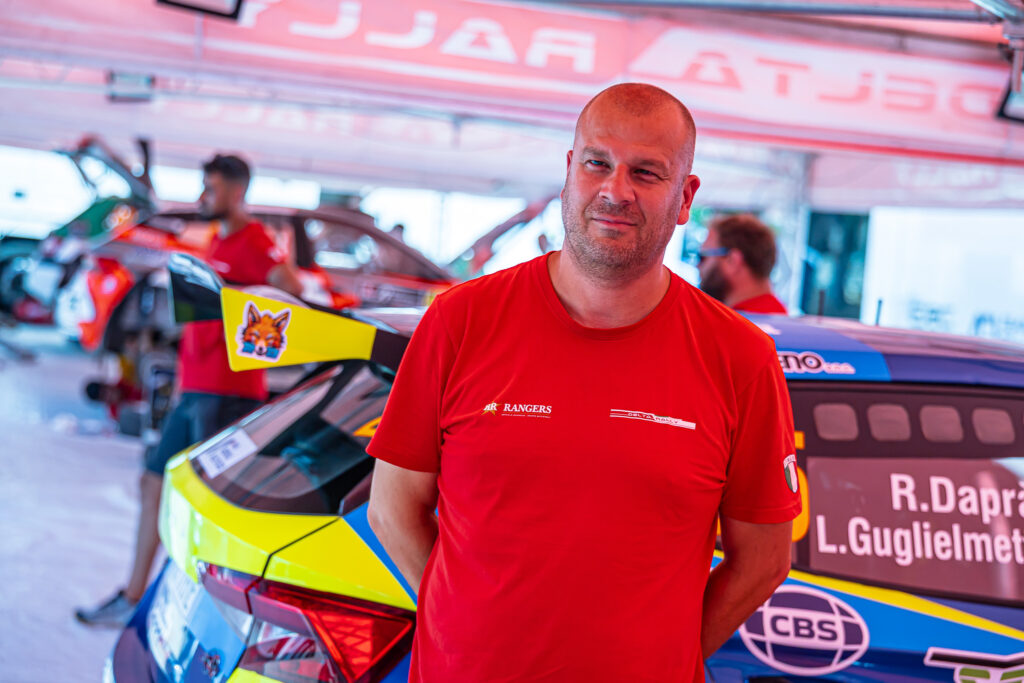
Simone Scattolin, Delta Rally Team coordinator
What parts can customers actually buy?
KH: Most teams competing in the WRC2 and ERC use the latest specification car, so most of the range is made up of parts for the Škoda Fabia RS Rally2. But we also have parts for the previous generation special, the Škoda Fabia Rally2 evo. We try to cover the maximum of what our customers may need: from fasteners, chassis, engine and body parts to complete transmissions, i.e. gearbox and differential. Of course, we have to take into account the limited space in the truck, but in total, we can offer more than 1,700 unique items.
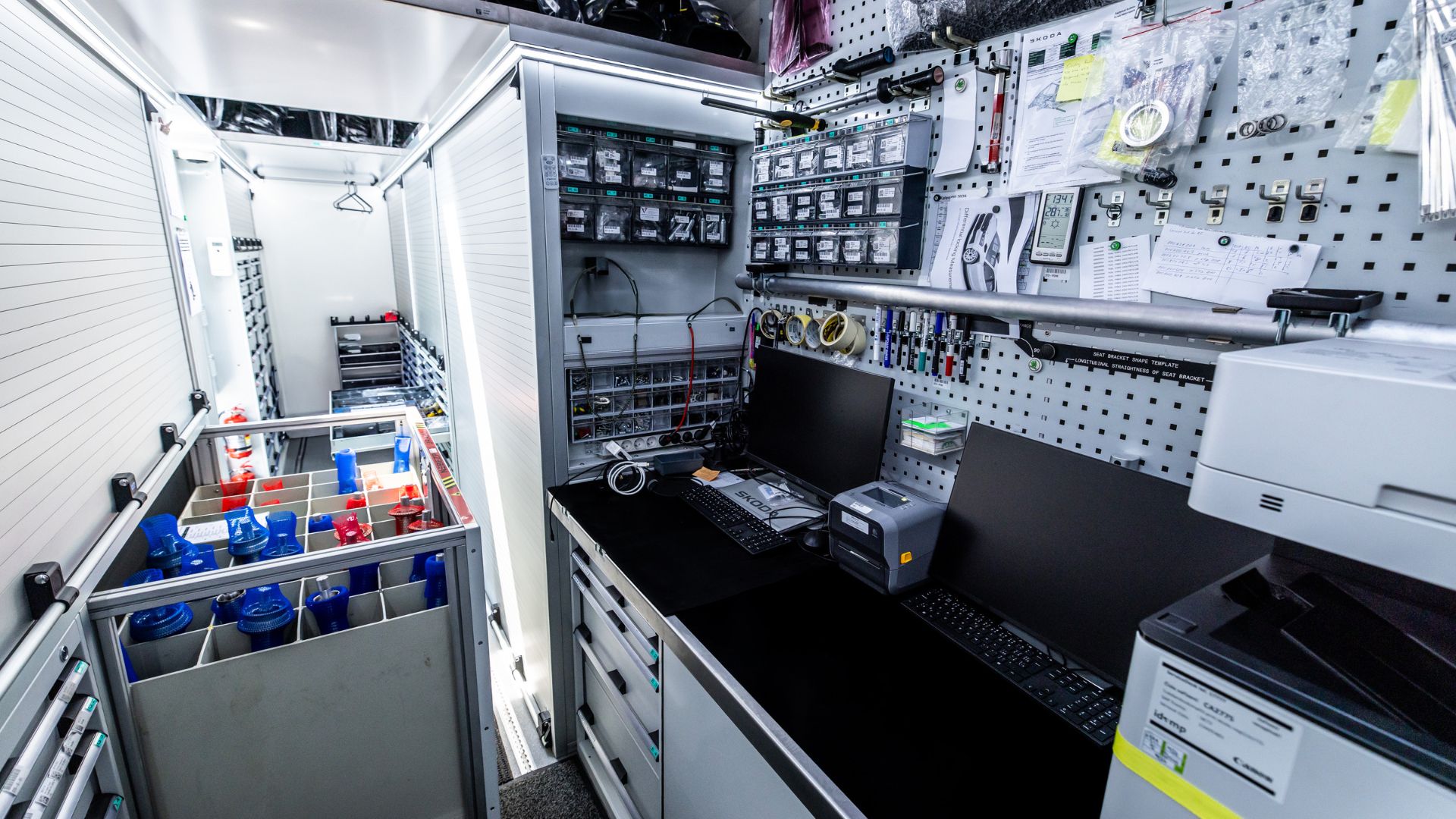
Has the service changed in any way over the years?
LP: Since the first race, we have been trying to improve it based on our experience and customer feedback. Both in terms of the breadth of the range and by adjusting the offer and stock according to the expected demand and conditions of each plant. Of course, we also continuously improve our technical equipment, systems and connectivity, which makes the work of our sales staff and engineers easier.
And has it changed how customers use the service?
LP: Since customers have become accustomed to the presence of the truck at selected plants over several years of operation, usage has not changed significantly. We usually serve most of the teams that start with a Skoda car. Customers are always informed in advance whether or not they can count on the support of a spare parts truck. The specific requirements of the teams on site are of course influenced by the type and difficulty of the competition.
Is there any limit to the number of parts I can buy for a rally?
KH: Parts purchases are only limited by our on-site inventory. Customers mainly buy parts that they need urgently during the race. But they also buy parts for reserve. This year the WRC2 and ERC calendar is very busy. And especially for the teams competing in both championships, it can sometimes be logistically very challenging to prepare a competition car for the next event the following weekend. For this reason, they are happy to take the opportunity to purchase parts to repair the car from our truck. This will save them the time it would take to deliver the parts from our headquarters in Mladá Boleslav.
How do you actually replenish and estimate the necessary supplies?
KH: We mainly focus on replenishing the important parts that keep the car running and also items for routine service. We adapt the parts range to the type of competition and surface, asphalt, gravel or snow changes the mix. We also adapt to customer requests, so for example, if we don't have a requested part in stock, we try to replenish it for the next race. But it doesn't always mean that if a part is in high demand at one plant, it will be the same at the next plant. Demand is influenced by, among other things, the difficulty of the race, the weather or car crashes, which are variables that no one can accurately predict in advance.
